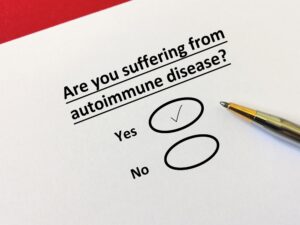
Can IBS Cause Weight Gain?
Digestive irregularities can sometimes lead to weight changes, fatigue, and nutritional deficiencies, highlighting the importance of managing IBS to maintain overall digestive health.

Digestive irregularities can sometimes lead to weight changes, fatigue, and nutritional deficiencies, highlighting the importance of managing IBS to maintain overall digestive health.

While Irritable Bowel Syndrome (IBS) and autoimmune disorders can share some overlapping symptoms, such as abdominal discomfort and altered bowel habits, they are fundamentally different conditions.

While hemorrhoids are common and often resolve on their own, severe cases may require medical attention to alleviate symptoms and prevent complications.

Individuals who previously tolerated gluten without issues may suddenly experience symptoms like abdominal pain, diarrhea, fatigue, or unexplained weight loss.

Pregnant individuals with IBS should work closely with their healthcare providers to tailor their dietary and lifestyle strategies, ensuring both maternal and fetal health while minimizing discomfort.

Understanding how aging affects IBS is essential for managing the condition effectively through tailored dietary and lifestyle interventions.
For Your Visit
Englewood Office
420 Grand Avenue,
Suite 101,
Englewood, NJ 07631
P: 201-569-7044
Mon – Tues: 8:00AM – 7:00PM
Wed: 8:00AM – 6:00PM
Thurs: 8:00AM – 7:00PM
Fri: 8:00AM – 5:00PM
Sat & Sun: Closed
Englewood Cliffs Office (140 Sylvan Ave.)
140 Sylvan Avenue, Suite 101A,
Englewood Cliffs, NJ 07632
P: 201-945-6564
Mon – Tues: 8:00AM – 7:00PM
Wed: 8:00AM – 6:00PM
Thurs: 8:00AM – 7:00PM
Fri: 8:00AM – 5:00PM
Sat & Sun: Closed
Englewood Cliffs Office (270 Sylvan Ave.)
P: 201-568-6222
270 Sylvan Ave
Suite 1160,
Englewood Cliffs, NJ 07632
Mon – Fri: 8:00AM – 4:00PM
Sat & Sun: Closed
Edgewater
P: 201-945-6564
235 Old River Road
Edgewater, 07020
Mon – Tues: Closed
Wed: 1:30PM – 3:30PM
Thurs – Sun: Closed
© All Rights Reserved